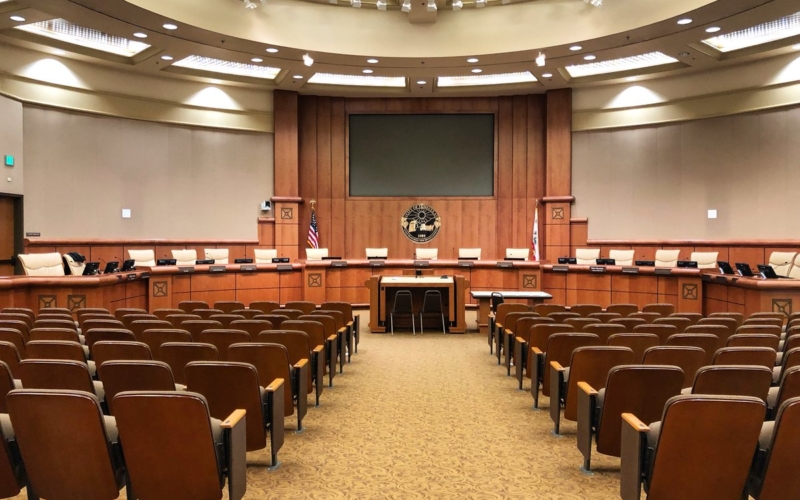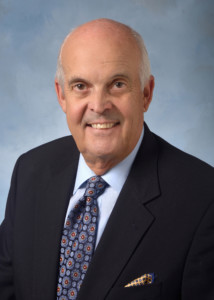Court of Appeal decision on bias tainting sets California precedent
By Gary Schons, Best Best & Krieger LLP
City councilmembers are policymakers. They are the voice of their constituents. Occasionally, this role shifts to mirror that of a judge when the legislative body hears matters on appeal from an administrative body. Serving in this quasi-judicial capacity, officials must remain neutral and unbiased decisionmakers.
The restraints imposed on city councilmembers when hearing an appeal were explored earlier this year in Petrovich Development Co. LLC v. City of Sacramento in which the Third District Court of Appeal affirmed a lower court’s decision to void a city’s conditional use permit denial. The appellate court affirmed that one biased councilmember’s participation in the permit denial process was enough to invalidate the decision.
The now precedent-setting decision in California affirms that when acting in a quasi-judicial capacity, councilmembers cannot have a personal conflict of interest, cannot have prejudged the facts and must remain free of prejudice against any of the parties. A councilmember’s failure to recuse his or herself could invalidate the decision and expose the public entity, and the legislator, to potential legal challenges.
To Recuse or Not to Recuse
In 2010, the Sacramento City Council approved land use and zoning entitlements for a 72-acre, mixed-use development including single- and multi-family residential housing plus retail and commercial areas.
Local developer Paul Petrovich’s company sought a conditional use permit four years later to construct and operate a 16-pump gas station providing an extension of the services offered by the development’s shopping center anchor, a Safeway supermarket. A nearby neighborhood association opposed the CUP.
Sacramento City Councilmember Jay Schenirer, a resident of the adjacent neighborhood, was a current member and former board member of the neighborhood association opposing the gas station CUP.
By an 8-3 vote, the city’s Planning and Design Commission approved the CUP in 2015. This decision was appealed to the City Council. While pending, the president of the union representing local grocery store employees wrote to the city attorney about the gas station and sought legal guidance on whether Schenirer should recuse himself. The union president cited a quote the councilmember made at a neighborhood association meeting, “I don’t think a gas station fits within what was originally proposed,” in his recusal reasoning.
The city attorney responded that, while Schenirer had expressed an opinion about the project at a public meeting, he had not attacked the proposal or advocated against it, nor had he indicated that his mind was made up. Therefore, the city attorney concluded the councilmember’s recusal was not required.
At the hearing, the City Council, including the mayor, voted 7-2 against the CUP.
Petrovich Development Co. filed a lawsuit to void the decision alleging that city councilmembers were influenced by bias and inducements outside the public record, had improperly made a decision before a public hearing was open and had wrongfully denied the company the right to a fair and impartial quasi- judiciary hearing.
An Unacceptable Probability of Actual Bias
Discovery and trial revealed that Schenirer had made a host of maneuvers outside the public eye, designed to deny the CUP.
A series of text messages, emails and meetings leading up to the hearing between Schenirer, then mayor Kevin Johnson, the mayor’s advisor and other city councilmembers, demonstrated Schenirer had lined up the votes needed and planned to bring the motion to deny the CUP. He also prepared and emailed the mayor a compilation of “talking points” that amounted to a presentation against the gas station.
These tactics, the court held, suggested behind-the-scenes advocacy against the gas station and showed that Schenirer had pre-judged the matter and went into the hearing committed to an outcome.
As did the trial court, the appellate court found that Schenirer’s nearby residence, membership in the neighborhood association and public comments on the gas station did not disqualify him from voting on the issue. The appellate court even noted that public officials have a right, and obligation, to speak to their constituents on matters of public interest and to express their views without recusing themselves for bias.
However, in the run up to the hearing, Schenirer crossed the line into advocacy against the project.
“Councilmember Schenirer acted as advocate, not a neutral and impartial decisionmaker, and should have recused himself from voting on the appeal. Because he did not, Petrovich did not receive a fair hearing,” Presiding Justice Vance W. Ray wrote for the court.
The appellate court concluded that, even if only one of the decisionmakers fails to recuse oneself because of a disqualifying bias, there are sufficient grounds to overturn the body’s decision — even if that councilmember’s singular vote was not outcome determinative or necessary to the decision.
In its decision, the appellate court rejected the City’s “harmless error” argument that Schenirer’s vote was not outcome determinative because the Council voted 7-2 to deny the CUP, writing, “councilmember Schenirer’s assistance … in obtaining the City Council’s vote against the project was not a mere technical error that can be deemed harmless or nonprejudicial, but rather a fundamental error in the process.”
In a rare move, the California Supreme Court granted itself an extension to review the case.
While no petition for review was submitted, it’s likely a request for the decision’s depublication by the California State Association of Counties and League of California Cities caught the Court’s eye. The CSAC and LCC claim the decision’s “lack of clarity” regarding appropriate procedures for adjudicatory proceedings could subject routine government decision-making to legal challenges.
The retail center has since been built and partially opened, including a Safeway without a gas station.
Separately, Petrovich has a claim for damages against the City over the conditional use permit denial. He’s also seeking to hold Schenirer and Johnson personally liable.
Gary Schons, head of Best Best & Krieger LLP’s Government Policy & Public Integrity practice, counsels California public agencies, officials and those doing business with the government on building public confidence in their decision-making processes, governmental and political processes by ensuring official conduct is above reproach. He can be reached at gary.schons@bbklaw.com.






